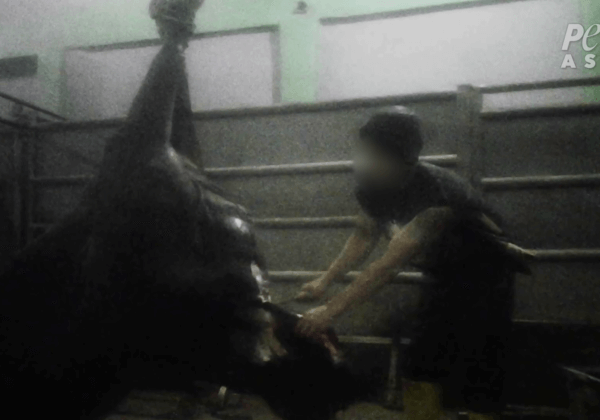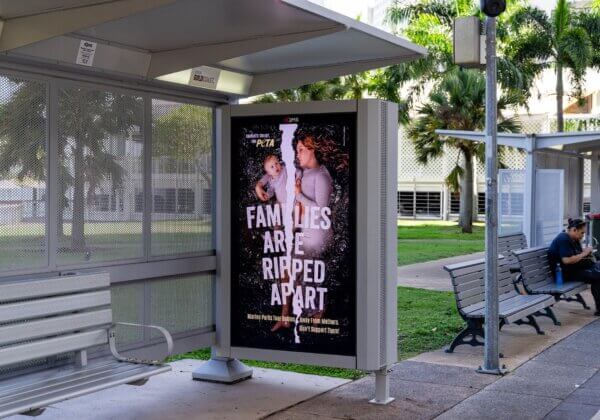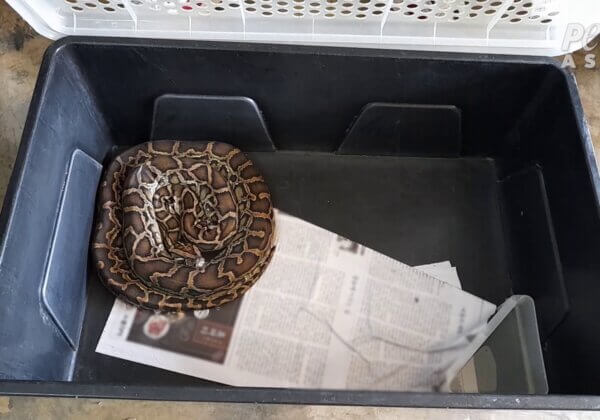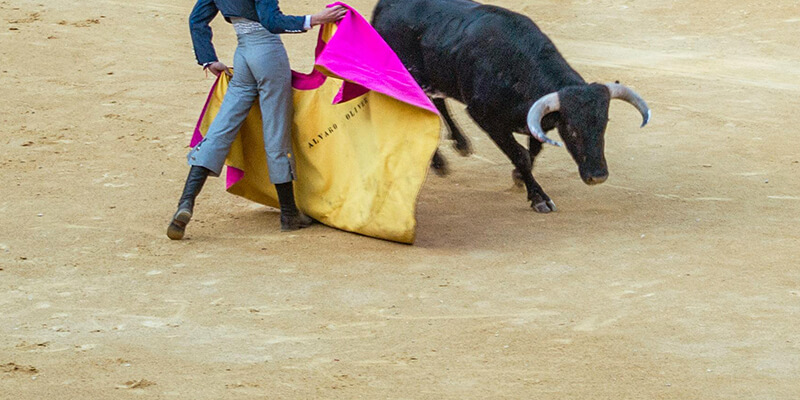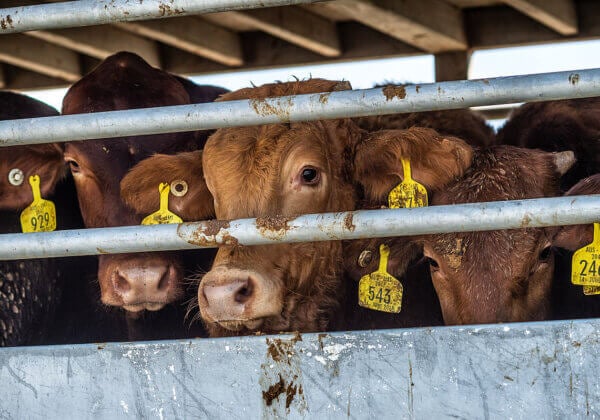Horses, Donkeys, Mules, and Camels are Suffering in Jordan
Update: In an understanding reached by Jordan’s minister of tourism and antiquities, Her Excellency Lina Annab; the chief commissioner of the Petra Development and Tourism Region Authority, His Excellency Falah Omoush; and Saudi Arabian Prince Khaled bin Alwaleed of KBW Investments, major improvements will be made at Petra that should help preserve the site’s steps, lay to rest complaints from international visitors, and end the beatings and other abusive treatment of working animals shown in PETA’s recent video exposé of the city’s tourist industry.
The memorandum of understanding, signed recently, includes plans for the introduction of eco-friendly electric vehicles to carry tourists and the installation of modern animal clinics, where the animals would receive regular veterinary care. Other plans include providing new water stations to ensure that animals have access to fresh drinking water and introducing a prohibition on forcing animals to walk dangerous paths or carry heavy loads.
Originally published on 17 January, 2018:
Handlers repeatedly hit the animals with anything at hand—including hard-plastic pipes, ropes, metal chains, and whips—to keep the exhausted animals working.
Visitors go to Petra to marvel at its ancient monuments and temples, yet the “Lost City” has a dark and ugly side. More than 1,300 horses, donkeys, mules, and camels are forced to carry tourists or pull carriages in the city every day, and they’re suffering terribly.
Even when they’re simply too spent to go on, they’re viciously beaten. When a donkey balked at carrying more tourists after just having finished a tour, the handler kicked him in the stomach so hard that even a bystander recoiled. Although the animal attempted to escape the onslaught, he was held by a rope and unable to run away.
Despite working all day in the desert heat, these animals are deprived of water until they return to the stables—the only source of water in the Petra Archaeological Park.
Between rides, they’re tied up, with no shade or other respite from the heat. Some ropes are tied so tightly that animals can’t even lie down and must remain standing until the next paying customer arrives.
Many animals sustain wounds because the metal chains and ropes are tied so tightly that they gouge their skin. A PETA Asia eyewitness saw camels forced to work with fly-infested, open wounds caused by their bridles being pulling too hard. Donkeys were found with metal chains around their necks that were stained with blood from their injuries.
While some areas of Petra are accessible only by the able-bodied, Jordan can and should replace Petra’s working horses, donkeys, mules, and camels with modern motorized vehicles to allow these animals to lead a better life, one that’s free of suffering. Cruelty to animals should be banned in any society, especially a modern one grounded in the holiest of teachings.
On holiday, we often come across animal attractions – whether an elephant trek, a marine park, or a roadside zoo. Many sound appealing to people who love being around animals – but it’s the animals who pay the price for tourists’ desire to have a close encounter with them.
Being aware of the abuse behind animal attractions enables us to make informed choices and help end the cruelty by refusing to support it.


